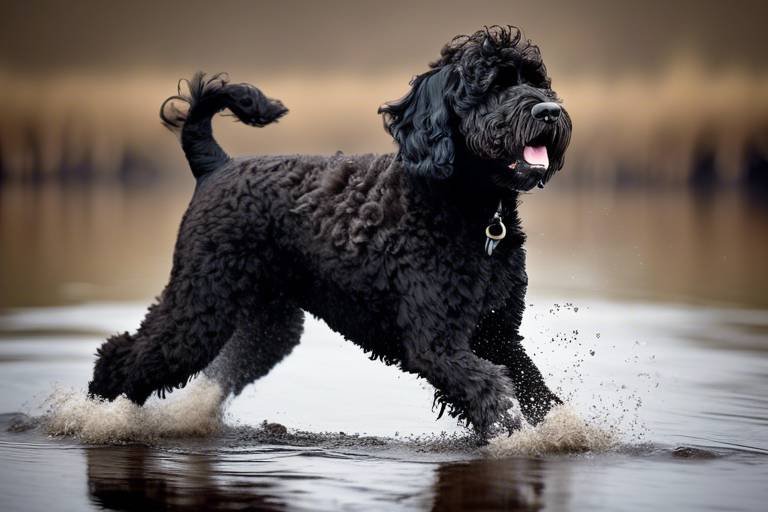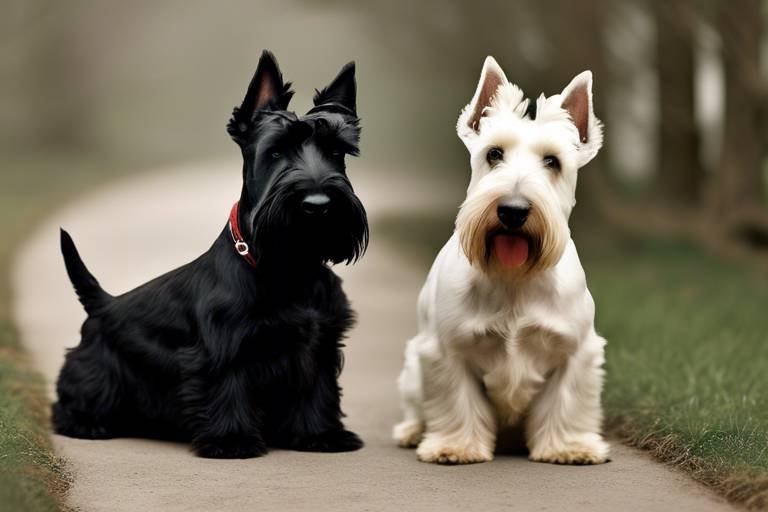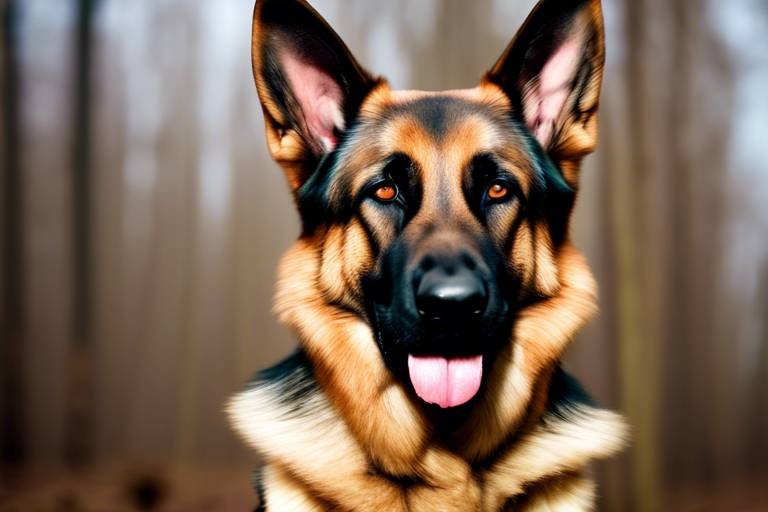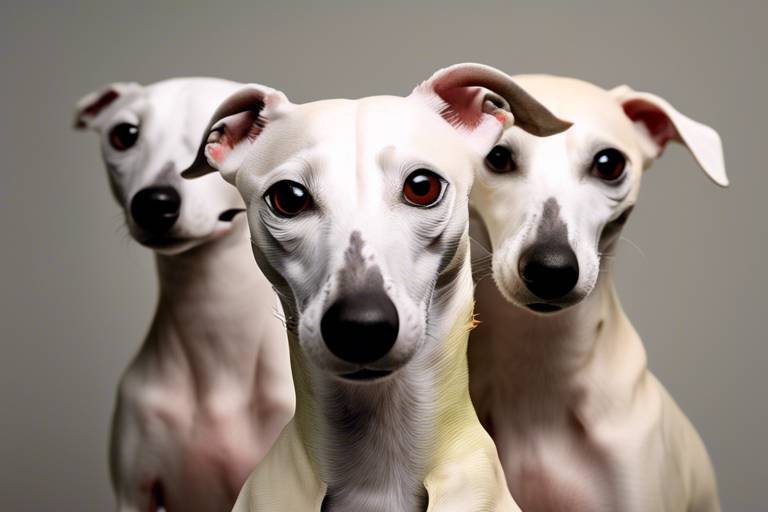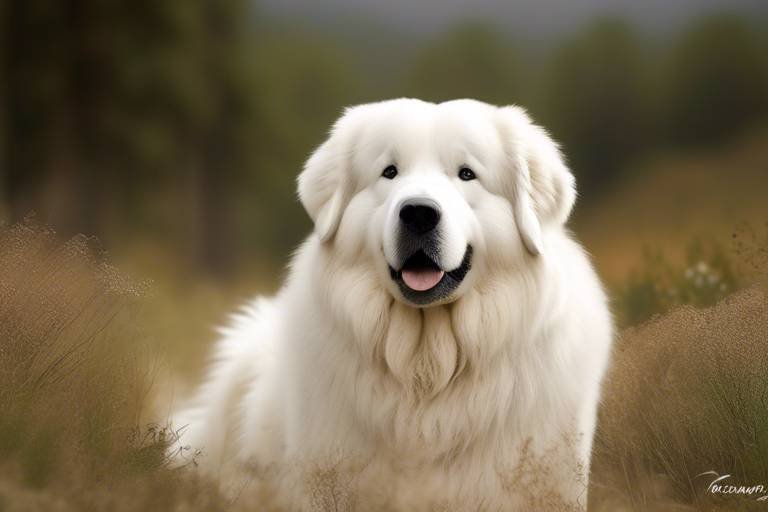The Unique Features of the Portuguese Water Dog
The Portuguese Water Dog is not just another breed; it's a vibrant tapestry of history, functionality, and charm. With their striking appearance and remarkable abilities, these dogs have captured the hearts of many. But what truly sets them apart? For starters, their intelligence and versatility make them exceptional companions, whether you're an active individual or a family looking for a loyal pet. Their affinity for water is not just a quirk; it’s in their blood, stemming from centuries of being bred to assist fishermen in their daily tasks. Imagine a dog that not only loves splashing in the waves but was actually designed for it!
One of the most fascinating aspects of the Portuguese Water Dog is their history. These dogs were originally bred in Portugal to help with fishing, retrieving nets, and even catching fish. Their unique skills were so valued that they became an indispensable part of the fishing community. This background not only highlights their physical capabilities but also sheds light on their temperament. They are naturally inclined to work alongside humans, showcasing their loyalty and eagerness to please.
Physically, the Portuguese Water Dog is a sight to behold. With their curly or wavy coat and strong, muscular build, they are perfectly adapted to life in the water. Their coat serves a dual purpose: it protects them from the cold and provides buoyancy. This breed’s agility and endurance make them ideal for various water-related activities, from swimming to paddleboarding. But it's not just about their looks; their physical traits are a testament to their active lifestyle and love for adventure.
When it comes to grooming, understanding the needs of a Portuguese Water Dog is crucial. Their coat requires regular maintenance to keep it healthy and looking its best. Owners should be aware of the different types of coats—curly and wavy—and the specific grooming techniques each requires. Regular brushing and occasional professional grooming can help prevent matting and keep the coat shiny. After all, a well-groomed dog is a happy dog!
In terms of size, Portuguese Water Dogs come in two varieties: standard and miniature. Regardless of their size, their build is muscular and robust, making them excellent companions for various activities. Whether you’re looking for a running buddy or a playful family pet, this breed can adapt to your lifestyle. Their friendly disposition and energetic nature make them perfect for families, singles, and everyone in between.
Now, let’s talk about their temperament. Portuguese Water Dogs are known for being friendly, energetic, and highly social. They thrive on interaction, and their playful nature means they are always up for some fun. This breed is also highly intelligent, which makes them relatively easy to train. However, their eagerness to please can sometimes lead to stubbornness, so it’s essential to use positive reinforcement techniques during training.
Socialization is another critical aspect of their development. Early exposure to different environments, people, and experiences helps prevent behavioral issues later in life. A well-socialized Portuguese Water Dog is a joy to be around; they are confident and well-adjusted, making them fantastic family pets.
In conclusion, the Portuguese Water Dog is more than just a breed; it's a unique blend of history, physical prowess, and affectionate personality. Their distinctive features make them stand out, whether in the water or on land. If you’re considering adding one to your family, be prepared for a loyal companion who will keep you on your toes and fill your life with joy.
- Are Portuguese Water Dogs good with children? Yes, they are known for being friendly and energetic, making them excellent companions for kids.
- How much exercise do they need? Portuguese Water Dogs are active and require regular exercise, ideally daily walks and playtime.
- Do they shed a lot? No, they have a low-shedding coat, which can be a plus for allergy sufferers.
- Are they easy to train? Their intelligence and eagerness to please make them relatively easy to train, especially with positive reinforcement.
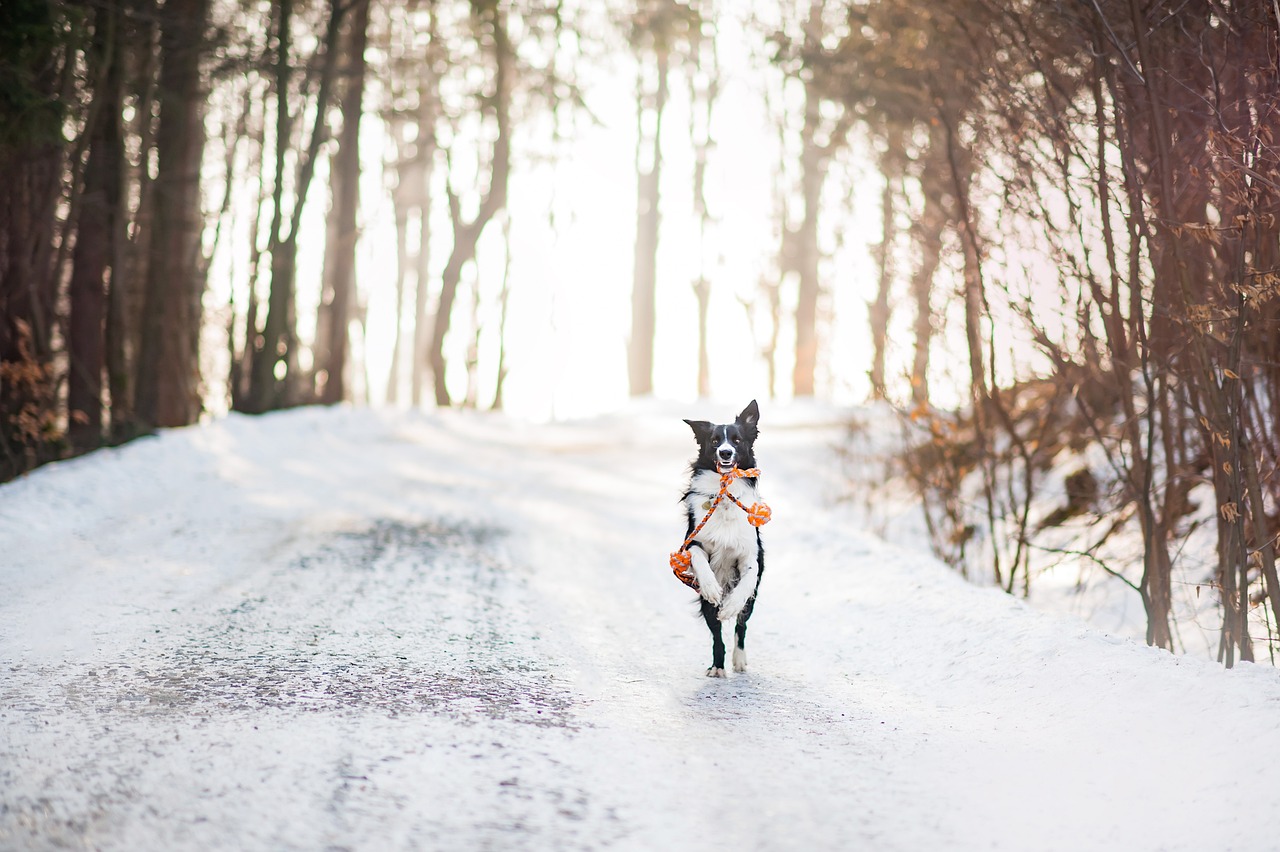
History of the Portuguese Water Dog
This article explores the distinctive characteristics, history, and traits of the Portuguese Water Dog, a beloved breed known for its intelligence, versatility, and affinity for water.
The origins of the Portuguese Water Dog date back several centuries, with roots tracing back to the working dogs of the fishermen in Portugal. These remarkable canines were not just pets; they were essential partners in the fishing trade. Their primary role involved retrieving nets, catching fish, and even delivering messages between boats and the shore. Imagine a time when these dogs were the lifeline of fishermen, diving into the waves and braving the sea to assist their human counterparts. This close relationship with water has shaped their unique abilities and temperament.
Historically, these dogs were bred for their strength and agility, enabling them to swim long distances and perform various tasks in the water. Their natural swimming ability is evident in their webbed feet, which act like paddles, propelling them through the water with ease. The breed was also known for its intelligence, which made them invaluable in the demanding environment of fishing. As the fishing industry evolved, so did the role of the Portuguese Water Dog. They transitioned from working dogs to family pets, but their love for water and playful nature remained unchanged.
In the early 20th century, the breed faced the threat of extinction due to the decline of the fishing industry. Thankfully, dedicated breeders worked tirelessly to preserve the breed, and in 1930, the Portuguese Water Dog Club was established, which played a significant role in promoting and protecting the breed. Their efforts were successful, and by the late 20th century, the Portuguese Water Dog gained recognition beyond Portugal, eventually making its way to the United States.
Today, the Portuguese Water Dog is celebrated not only for its rich history but also for its versatility. These dogs excel in various roles, from therapy and assistance dogs to competitors in dog sports. Their remarkable adaptability and friendly disposition make them beloved family pets. Understanding the history of the Portuguese Water Dog provides valuable insight into their unique abilities and temperament, showcasing why they are such a cherished breed worldwide.
- What is the average lifespan of a Portuguese Water Dog?
The average lifespan is around 12 to 14 years, depending on health and care. - Are Portuguese Water Dogs hypoallergenic?
Yes, their curly coat is less likely to trigger allergies compared to other breeds. - How much exercise do they need?
These dogs require regular exercise, ideally 1 to 2 hours of activity each day. - Can they be left alone for long periods?
Portuguese Water Dogs thrive on companionship and should not be left alone for extended periods.

Physical Characteristics
The Portuguese Water Dog (PWD) is a breed that stands out not just for its intelligence and versatility, but also for its unique physical characteristics that make it particularly well-suited for aquatic environments. With a robust and muscular build, these dogs are designed for action, whether it be swimming, retrieving, or simply playing fetch. Their bodies are compact yet powerful, allowing them to navigate through water effortlessly. When you see a PWD in motion, it’s like watching a well-oiled machine, each muscle working in harmony to propel them forward.
One of the most striking features of the Portuguese Water Dog is its coat. The breed is known for its curly or wavy fur, which serves a dual purpose: it not only keeps them warm in cold waters but also repels moisture, allowing them to stay dry for longer periods. This unique coat is a hallmark of the breed and comes in various colors, including black, white, and brown, often with stunning patterns that can make each dog look like a work of art. However, this beautiful coat requires diligent care to maintain its health and appearance. Understanding the grooming needs is essential for owners who want to keep their pets looking their best.
The coat of the Portuguese Water Dog is not just about aesthetics; it also plays a crucial role in their functionality as working dogs. The texture of their fur can be categorized into two main types:
- Curly Coat: This type is dense and provides excellent insulation against cold water. It requires regular brushing to prevent matting and to keep it looking its best.
- Wavy Coat: Slightly less dense than the curly coat, the wavy coat still offers good protection and is often easier to manage. Regular grooming is essential to maintain its luster.
Regardless of the coat type, owners should be prepared for a grooming routine that includes regular brushing, which helps to remove loose hair and prevent tangles. In addition to brushing, occasional professional grooming is recommended to keep the coat in top condition. This not only enhances the dog's appearance but also contributes to their overall health.
Portuguese Water Dogs come in two size varieties: standard and miniature. The standard size typically weighs between 35 to 60 pounds and stands about 17 to 23 inches tall at the shoulder, while the miniature variety weighs around 20 to 40 pounds and stands about 12 to 16 inches tall. This diversity in size allows potential owners to choose a dog that best fits their lifestyle and living situation. Regardless of size, both types share a muscular build that supports their active lifestyle, making them ideal companions for various activities. Whether you’re into hiking, swimming, or just playing at the park, a Portuguese Water Dog is always up for the challenge.
In conclusion, the physical characteristics of the Portuguese Water Dog are not just about looks; they are a testament to the breed's history as a working dog. From their unique coat that protects them in water to their strong, agile bodies that enable them to perform various tasks, these dogs are truly remarkable. Whether you’re considering adding one to your family or just learning about this fascinating breed, understanding their physical traits can deepen your appreciation for the Portuguese Water Dog.
Q: How often should I groom my Portuguese Water Dog?
A: Regular grooming is essential, ideally every 4 to 6 weeks, to prevent matting and keep their coat healthy.
Q: Are Portuguese Water Dogs good with children?
A: Yes! They are known for their friendly and energetic nature, making them excellent family pets.
Q: Do Portuguese Water Dogs require a lot of exercise?
A: Absolutely! They are active dogs that thrive on regular exercise and mental stimulation.
Q: What health issues should I be aware of?
A: Common health concerns include hip dysplasia and eye disorders. Regular vet check-ups can help catch these issues early.
Coat and Grooming
The Portuguese Water Dog is renowned not just for its intelligence and playful demeanor, but also for its stunning coat that serves a functional purpose. Their unique fur can either be curly or wavy, both of which provide excellent insulation and water resistance, making these dogs true champions in aquatic environments. However, this beautiful coat requires dedicated grooming to keep it in top shape and to maintain the health of your furry friend.
Regular grooming is essential for Portuguese Water Dogs. Due to their dense and curly or wavy fur, they are prone to matting if not brushed frequently. Ideally, you should brush your dog at least two to three times a week to prevent tangles and to keep their coat shiny and healthy. This brushing routine not only helps in maintaining the coat but also serves as a wonderful bonding activity between you and your dog. Think of it as a spa day for your pet!
When it comes to grooming products, it’s essential to use tools designed specifically for curly or wavy coats. A slicker brush is a fantastic choice, as it can easily reach through the dense fur to remove loose hair and debris. Additionally, a comb can be used to gently work through any knots that may form. Remember, a little patience goes a long way; your dog will appreciate the attention and care.
Here’s a quick overview of grooming needs:
| Grooming Task | Frequency | Tools Needed |
|---|---|---|
| Brushing | 2-3 times a week | Slicker brush, comb |
| Bathing | Every 4-6 weeks | Dog shampoo, conditioner |
| Professional Grooming | Every 6-8 weeks | Grooming salon |
Bathing is another crucial aspect of grooming. It's recommended to bathe your Portuguese Water Dog every 4 to 6 weeks, using a high-quality dog shampoo that suits their coat type. Make sure to rinse thoroughly to avoid any residue that could irritate their skin. After bathing, a conditioner can help keep their coat moisturized and manageable. Just like we enjoy a good hair treatment, your dog will benefit from a little pampering too!
Finally, consider scheduling professional grooming sessions every 6 to 8 weeks. A professional groomer can provide a thorough grooming experience, including trimming and shaping the coat to keep it looking its best. They can also check for any skin issues that you might not notice at home. Regular grooming not only enhances your dog's appearance but also contributes to their overall well-being.
In summary, while the coat of a Portuguese Water Dog is a stunning feature that sets them apart, it does come with the responsibility of regular grooming. By investing time and effort into their grooming routine, you can ensure that your dog remains healthy, happy, and looking fabulous!
Types of Coats
This article explores the distinctive characteristics, history, and traits of the Portuguese Water Dog, a beloved breed known for its intelligence, versatility, and affinity for water.
The origins of the Portuguese Water Dog date back centuries, serving fishermen as helpers in retrieving nets and catching fish. Understanding their history provides insight into their unique abilities and temperament.
With a distinctive curly coat and strong build, Portuguese Water Dogs are well-suited for aquatic environments. Their physical traits contribute to their agility and endurance in water-related activities.
The unique coat of the Portuguese Water Dog requires regular grooming to maintain its health and appearance. Understanding the grooming needs is essential for owners to keep their pets looking their best.
Portuguese Water Dogs are known for their unique and versatile coats, which can be categorized primarily into two types: curly and wavy. Each coat type not only contributes to their distinctive appearance but also affects grooming requirements and overall maintenance.
The curly coat is characterized by tight, springy curls that form a dense, water-resistant layer. This coat type is particularly beneficial for the breed's original purpose as a water dog, as it helps keep them warm in cold water. However, the curls can trap dirt and debris, necessitating more frequent grooming sessions to prevent matting.
On the other hand, the wavy coat is slightly longer and has looser waves, giving it a more flowing appearance. While this coat type is equally beautiful, it tends to shed more than the curly coat, which can influence the grooming routine. Owners of wavy-coated Portuguese Water Dogs may find that they need to brush their dogs more regularly to manage shedding and maintain a healthy coat.
Regardless of the coat type, both require attention and care. Here’s a brief overview of the key differences:
| Coat Type | Characteristics | Grooming Needs |
|---|---|---|
| Curly | Tight, springy curls; dense and water-resistant | Frequent grooming to avoid matting |
| Wavy | Loose waves; longer and flowing | Regular brushing to manage shedding |
Choosing the right care routine based on the coat type is crucial for the health and appearance of your Portuguese Water Dog. With consistent grooming, both coat types can shine, reflecting the breed's vibrant personality and charm.
Regular brushing and occasional professional grooming are vital for maintaining the coat's condition. Learning effective grooming tips ensures a healthy and happy dog.
Portuguese Water Dogs come in two size varieties: standard and miniature. Their muscular build supports their active lifestyle, making them ideal companions for various activities.
Known for their friendly and energetic nature, Portuguese Water Dogs are highly social animals. Their temperament makes them excellent family pets and companions for active individuals.
These dogs are highly intelligent and eager to please, making them relatively easy to train. Understanding their learning style can enhance the training experience for both dog and owner.
Early socialization is crucial for Portuguese Water Dogs to develop well-rounded personalities. Engaging them with various environments and people helps prevent behavioral issues later in life.
Like all breeds, Portuguese Water Dogs are prone to certain health issues. Being aware of potential health concerns can help owners ensure their pets lead long, healthy lives.
Some common health issues in Portuguese Water Dogs include hip dysplasia and eye disorders. Regular veterinary check-ups and a healthy lifestyle can mitigate these risks.
Routine veterinary care, a balanced diet, and regular exercise are essential for maintaining the health of Portuguese Water Dogs. Understanding preventive measures can enhance their quality of life.
- Are Portuguese Water Dogs good with children? Yes, they are known for their friendly demeanor and typically get along well with kids.
- How much exercise do they need? These dogs are energetic and require regular exercise, ideally 60 minutes a day.
- Do they shed a lot? Portuguese Water Dogs are considered low-shedding, but grooming frequency will depend on their coat type.
- Are they good for first-time dog owners? Yes, their trainability and friendly nature make them suitable for first-time owners.
Grooming Tips
Keeping your Portuguese Water Dog looking sharp and healthy requires a bit of dedication, but it’s well worth the effort! First and foremost, regular brushing is essential. Aim for at least once a week to prevent mats and tangles, especially if your dog has a curly coat. Think of it like maintaining a beautiful garden; regular care will yield a flourishing result. When brushing, use a slicker brush or a comb designed for curly coats to ensure you’re getting down to the skin without causing discomfort.
In addition to brushing, consider scheduling professional grooming sessions every 6 to 8 weeks. This not only helps maintain their coat but also gives your furry friend a chance to socialize and get accustomed to being handled by different people. It's like a spa day for them! During these sessions, the groomer can also check for any skin issues or parasites that you might not notice at home.
Another important aspect of grooming is bathing. While you don’t want to overdo it—too many baths can strip the coat of its natural oils—a bath every 2 to 3 months is usually sufficient. Use a gentle, dog-specific shampoo to keep their skin healthy and avoid any allergic reactions. After bathing, make sure to dry them thoroughly, especially in colder weather, to prevent chills. A good blow dryer on a low setting can work wonders, but be sure to keep it at a safe distance to avoid overheating their skin.
Don't forget about their ears! Portuguese Water Dogs are prone to ear infections due to their floppy ears, which can trap moisture. Regularly check their ears for dirt or wax buildup and clean them gently with a veterinarian-approved solution. This simple step can save you from a lot of headaches down the line!
Finally, nail trimming is a crucial part of grooming. Long nails can lead to discomfort and even affect your dog's posture. Aim to trim their nails every 3 to 4 weeks, or whenever you hear them clicking on the floor. If you're unsure about how to trim them safely, ask your vet or groomer for a demonstration. Remember, a well-groomed dog is not only a happy dog but also a healthier one!
- How often should I groom my Portuguese Water Dog? Regular brushing is recommended at least once a week, with professional grooming every 6 to 8 weeks.
- Can I bathe my dog too often? Yes, over-bathing can strip their coat of natural oils. A bath every 2 to 3 months is generally sufficient.
- What should I use to clean my dog's ears? Use a veterinarian-approved ear cleaning solution to gently wipe away dirt or wax buildup.
- How can I tell if my dog's nails are too long? If you can hear their nails clicking on the floor, it’s time for a trim!
Size and Build
The Portuguese Water Dog is a breed that captures attention not just with its spirited personality but also with its impressive size and build. These dogs are typically categorized into two size varieties: the standard and the miniature. The standard Portuguese Water Dog stands between 17 to 23 inches tall at the shoulder and weighs anywhere from 35 to 60 pounds. On the other hand, the miniature variety is smaller, usually measuring between 12 to 17 inches in height and weighing around 20 to 40 pounds. This variance in size allows potential owners to choose a dog that best fits their lifestyle and living situation.
One of the most striking features of the Portuguese Water Dog is its muscular build. These dogs are not just cute and cuddly; they are built for action! Their strong, athletic bodies are designed to excel in water-related activities, making them fantastic swimmers. Their webbed feet and powerful legs allow them to navigate through water with ease, while their sturdy frame provides the endurance needed for long days spent retrieving nets or playing fetch in the lake. This combination of strength and agility makes them ideal companions for active individuals and families who enjoy outdoor adventures.
Moreover, the Portuguese Water Dog’s build is complemented by its unique coat, which serves a functional purpose. The dense, curly or wavy fur helps to insulate them against cold water temperatures, allowing them to work efficiently in chilly ocean waters. This coat is not just about looks; it’s a testament to their history as working dogs. The breed's physical characteristics, combined with their energetic disposition, make them perfect for various activities, from swimming and hiking to participating in dog sports.
In summary, whether you opt for a standard or miniature Portuguese Water Dog, you're choosing a breed that embodies strength, agility, and a love for water. Their build and size are not just for show; they reflect centuries of history as working dogs, ready to dive into any adventure that comes their way!
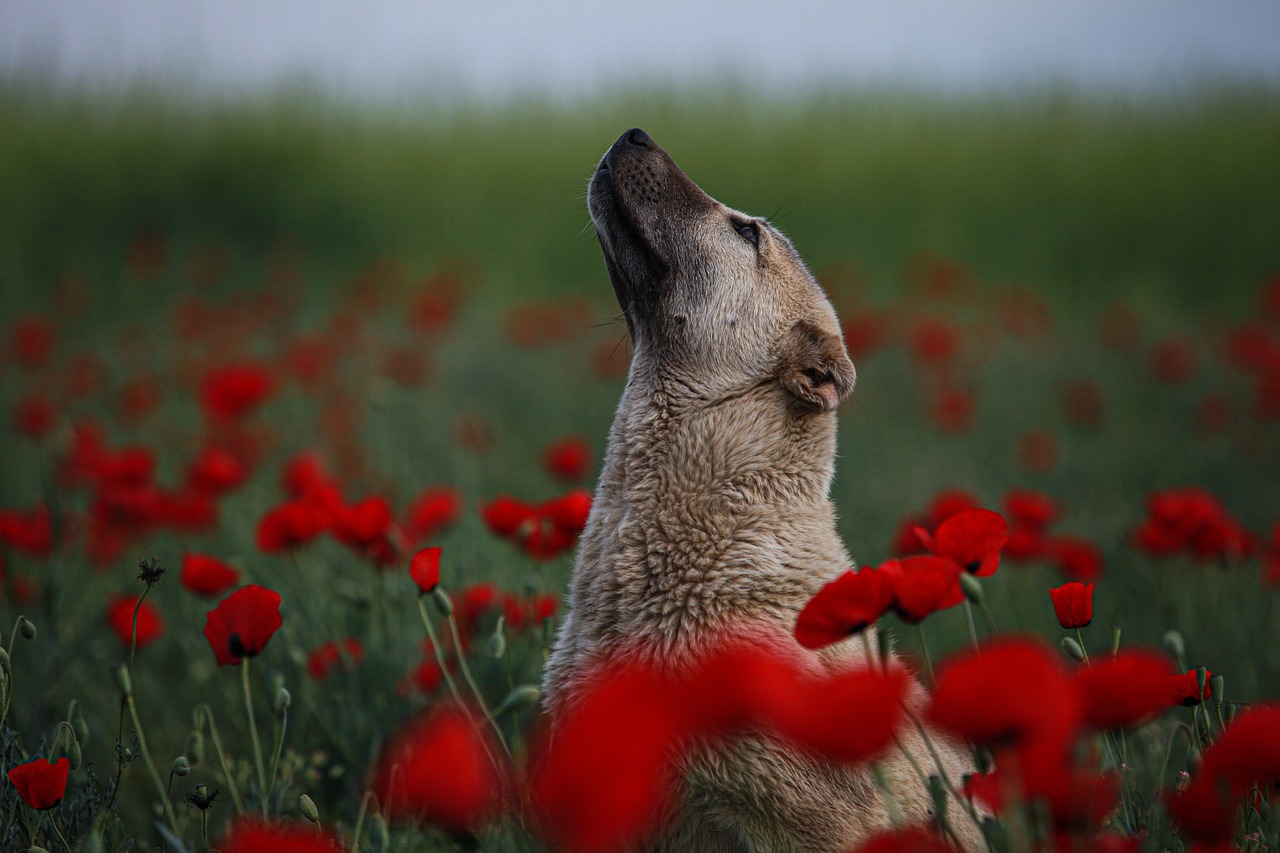
Temperament and Personality
The Portuguese Water Dog is not just a breed; it’s a bundle of joy wrapped in fur! Known for their friendly demeanor and energetic nature, these dogs thrive on companionship and activity. Imagine a dog that can keep up with your adventurous spirit while also being a loving family member. That’s exactly what you get with a Portuguese Water Dog. Their playful personality and eagerness to please make them a perfect fit for families and individuals alike.
One of the standout traits of this breed is their intelligence. These dogs are quick learners and often excel in obedience training. They respond well to positive reinforcement, which means they thrive on praise and rewards. If you’ve ever encountered a dog that seems to understand you on a deeper level, that’s the Portuguese Water Dog for you! Their ability to pick up commands and tricks quickly makes training sessions not just effective but also enjoyable.
However, with great intelligence comes the need for mental stimulation. Portuguese Water Dogs are naturally curious and require regular engagement to keep them happy. Think of them as the Einsteins of the dog world; they need challenges to satisfy their inquisitive minds. Without sufficient mental and physical activity, they can become bored, leading to unwanted behaviors. Therefore, incorporating a variety of activities such as agility training, swimming, and interactive games into their routine is essential.
Socialization is another critical aspect of their temperament. From an early age, it’s important to expose them to diverse environments, people, and other animals. This early exposure helps them develop into well-rounded adults. Imagine a dog that’s not just a pet, but a social butterfly at the dog park! Proper socialization can prevent behavioral issues and ensure that they grow up to be confident and friendly companions.
In terms of their interactions with children, Portuguese Water Dogs are typically very tolerant and affectionate. They have a natural knack for understanding the playful nature of kids, making them excellent family pets. Picture a dog that can join in on your child’s adventures, whether it’s a game of fetch in the backyard or a splash in the pool. Their gentle temperament allows them to coexist harmoniously with children, making them a beloved addition to many households.
Overall, the Portuguese Water Dog is a breed that embodies energy, intelligence, and affection. They are not just pets; they are companions that will stand by your side through life’s adventures. Whether you’re going for a run, hitting the beach, or just lounging at home, these dogs will always be ready to join you. Their unique blend of traits makes them a wonderful choice for those seeking a loyal and lively furry friend.
- Are Portuguese Water Dogs good with children? Yes, they are generally very friendly and tolerant, making them excellent companions for families with kids.
- How much exercise do they need? Portuguese Water Dogs require regular exercise and mental stimulation to stay happy and healthy. Daily walks, playtime, and swimming are great activities.
- Do they shed a lot? No, they have a curly coat that is considered hypoallergenic, which means they shed less than many other breeds.
- Are they easy to train? Yes, they are intelligent and eager to please, which makes them relatively easy to train with positive reinforcement techniques.
Intelligence and Trainability
The Portuguese Water Dog is often hailed as one of the most intelligent breeds, and for good reason! These dogs possess a remarkable ability to learn and adapt, making them not only a joy to train but also incredibly versatile companions. Their intelligence shines through in various activities, whether it’s fetching a ball from the water or mastering complex commands. But what makes them stand out even more is their eagerness to please their owners. This combination of intelligence and a strong desire to make their humans happy creates a unique training experience that can be both rewarding and fun.
Training a Portuguese Water Dog can feel like a delightful dance. They respond well to positive reinforcement, which means using treats, praise, and playtime as rewards for good behavior. Imagine teaching your dog to perform tricks as if you were both part of a well-rehearsed performance; the excitement and joy are palpable! However, it’s important to keep training sessions engaging and varied. These dogs thrive on mental stimulation and can become bored if the same commands are repeated too often. Mixing things up with new tricks or agility exercises can keep their minds sharp and their spirits high.
Another key aspect of their trainability is their ability to learn from their environment. Portuguese Water Dogs are naturally curious and observant, often picking up cues from their surroundings. This trait can be advantageous in social settings, where they can learn how to interact with other dogs and people. Socialization is crucial, especially during their formative months, as it helps them develop a well-rounded personality. The more experiences they have, the better equipped they will be to handle various situations throughout their lives.
When it comes to training, consistency is vital. Establishing a routine and using the same commands will help reinforce learning. Additionally, incorporating fun activities like water sports or obedience competitions can enhance their training experience. These dogs are not only excellent swimmers but also love to participate in dog sports, which can serve as an excellent outlet for their energy and intelligence. Just picture your Portuguese Water Dog diving into the waves, retrieving a toy, and bringing it back with pride—it's a sight that captures the essence of their athleticism and intelligence!
In summary, the Portuguese Water Dog's intelligence and trainability make them a fantastic choice for families and active individuals alike. With the right approach to training, these dogs can become well-behaved companions who bring joy and excitement to everyday life. So, are you ready to embark on this rewarding journey with your future furry friend?
- How intelligent are Portuguese Water Dogs?
They are considered highly intelligent, often ranking among the top breeds for trainability. - What is the best way to train a Portuguese Water Dog?
Positive reinforcement techniques, including treats and praise, work best for this breed. - Do they require a lot of mental stimulation?
Yes, they thrive on mental challenges and enjoy activities that engage their minds. - Can they be trained for specific tasks?
Absolutely! Their intelligence and eagerness to please make them suitable for various tasks, including service and therapy work.
Socialization Needs
Socialization is not just a buzzword in the world of dog ownership; it's a crucial aspect of raising a well-adjusted and happy Portuguese Water Dog. These dogs are naturally friendly and sociable, but without proper socialization, they might not reach their full potential as loving companions. Think of socialization as a buffet of experiences that introduces your pup to the world around them. The more diverse the menu, the better equipped they will be to handle various situations in life.
Starting from a young age, it’s essential to expose your Portuguese Water Dog to different environments, people, and other animals. This exposure helps them build confidence and reduces the likelihood of developing anxiety or fear-based behaviors. Imagine taking your dog on a mini-adventure each week; whether it’s a trip to the local park, a visit to a friend’s house, or even a stroll through a bustling market, each experience adds a new layer to their understanding of the world.
Here are some key areas to focus on during the socialization process:
- People: Introduce your dog to a variety of people, including children, seniors, and individuals wearing hats or sunglasses. Each interaction will help your dog learn to be comfortable around different types of humans.
- Animals: Arrange playdates with other dogs and expose them to different species, such as cats or even farm animals. This helps them learn proper communication and body language with other creatures.
- Environments: Take your dog to various locations, such as parks, beaches, and urban areas. Each new setting presents unique sights, sounds, and smells that will enrich their experiences.
Remember, the goal is to create positive associations with each new experience. If your dog encounters something that scares them, it’s essential to remain calm and supportive. Over time, they will learn to trust you and feel more secure in unfamiliar situations. Think of yourself as their guide, helping them navigate the vast landscape of life.
Incorporating socialization into your dog’s routine doesn’t have to be overwhelming. You can start small and gradually increase the complexity of the experiences as your dog becomes more comfortable. Consistency is key; regular outings will reinforce their learning and help them become well-rounded companions.
Ultimately, investing time in socialization will pay off immensely. A well-socialized Portuguese Water Dog is not only a joy to be around but also a dog that can adapt to various situations, making them a perfect fit for families and active individuals alike. So, grab that leash and start exploring the world together—your dog will thank you for it!
Q1: At what age should I start socializing my Portuguese Water Dog?
A1: It's best to start socializing your puppy as early as 7 to 8 weeks old. The critical socialization period lasts until about 16 weeks, so make the most of this time!
Q2: How can I tell if my dog is well-socialized?
A2: A well-socialized dog will exhibit confidence in new situations, show curiosity rather than fear, and interact positively with people and other animals.
Q3: What if my dog is fearful of new experiences?
A3: Take it slow! Gradually introduce them to new experiences and always use positive reinforcement to create positive associations.
Q4: Can I over-socialize my dog?
A4: Yes, too much exposure to overwhelming situations can lead to stress. Balance is key; ensure that socialization experiences are positive and not too frequent.
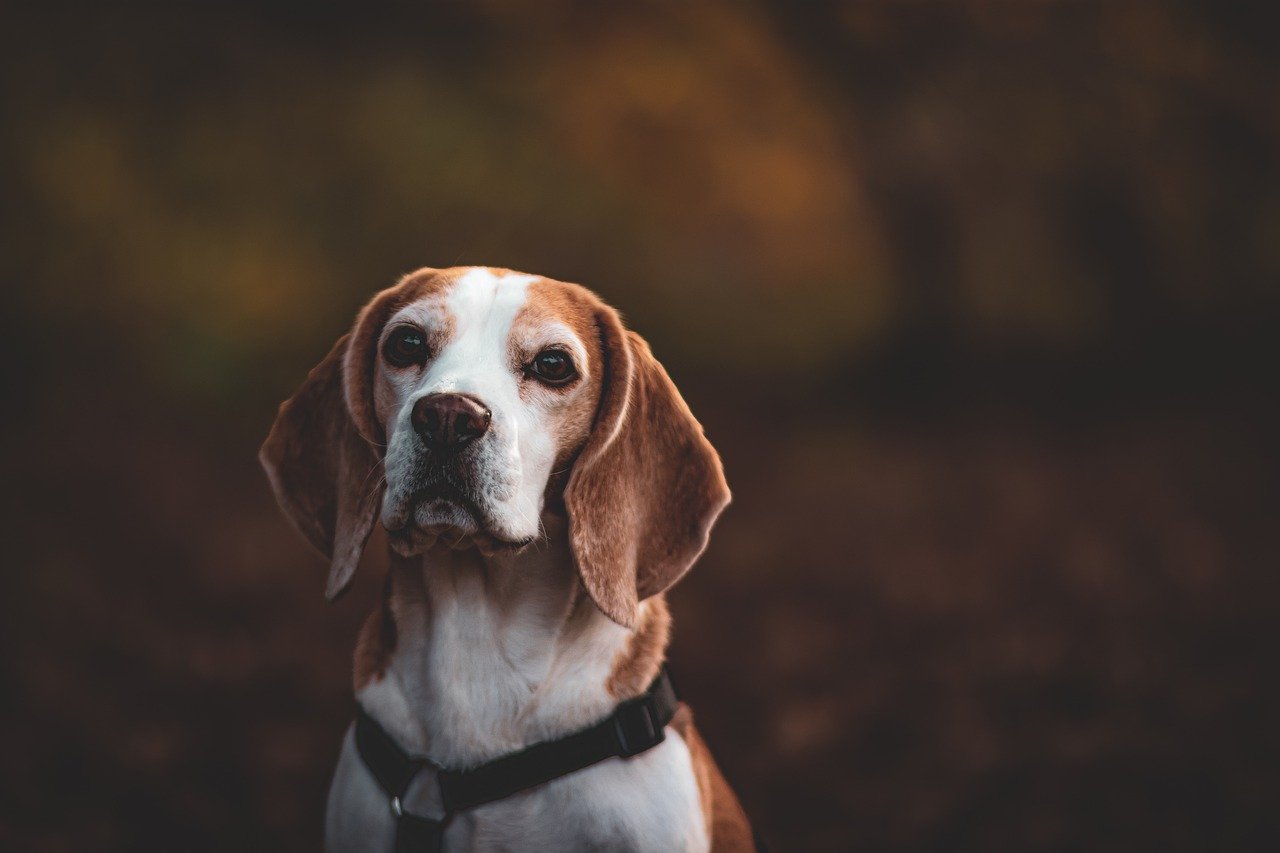
Health Considerations
When it comes to the Portuguese Water Dog, understanding their health considerations is crucial for any prospective owner. Like all breeds, they are prone to certain health issues, and being aware of these can help you take proactive steps to ensure your furry friend lives a long and happy life. Regular veterinary check-ups are essential, as they can help catch potential problems early on. This breed is generally healthy, but some common health concerns include hip dysplasia and various eye disorders.
Hip dysplasia is a genetic condition that affects the hip joint's formation, leading to arthritis and pain. It's important to monitor your dog for signs of discomfort, especially if they are less active or show difficulty in movement. On the other hand, eye disorders can range from cataracts to progressive retinal atrophy. These conditions can significantly impact your dog's vision, so regular eye examinations are vital.
To give you a clearer picture of these health issues, here’s a simple table summarizing common health concerns:
| Health Issue | Description | Preventive Measures |
|---|---|---|
| Hip Dysplasia | A genetic condition affecting the hip joint. | Regular vet check-ups, maintaining a healthy weight. |
| Eye Disorders | Conditions like cataracts and retinal issues. | Annual eye exams, monitoring for vision changes. |
In addition to these specific health issues, it’s important to consider the overall well-being of your Portuguese Water Dog. A balanced diet rich in nutrients is essential for their health, helping them maintain a healthy weight and energy levels. Regular exercise is also crucial; these dogs are naturally energetic and need ample opportunities to run, swim, and play. Incorporating activities that stimulate both their body and mind will not only keep them fit but also help prevent behavioral issues stemming from boredom.
Preventive care is more than just a trip to the vet. It includes a well-rounded approach to your dog's lifestyle. Routine veterinary care, a balanced diet, and regular exercise are all essential components of a healthy life for your Portuguese Water Dog. By understanding these preventive measures, you can significantly enhance their quality of life and help them thrive.
- What are the common health issues in Portuguese Water Dogs?
The most common health issues include hip dysplasia and various eye disorders. Regular veterinary check-ups can help manage these risks.
- How often should I take my Portuguese Water Dog to the vet?
It's recommended to have annual check-ups, but more frequent visits may be necessary if your dog shows signs of health issues.
- What type of diet is best for Portuguese Water Dogs?
A balanced diet that includes high-quality protein, healthy fats, and essential vitamins and minerals is ideal for maintaining their health.
- How much exercise does a Portuguese Water Dog need?
These dogs are very energetic and require at least 1 hour of exercise each day, which can include walking, swimming, or playing fetch.
Common Health Issues
This article explores the distinctive characteristics, history, and traits of the Portuguese Water Dog, a beloved breed known for its intelligence, versatility, and affinity for water.
The origins of the Portuguese Water Dog date back centuries, serving fishermen as helpers in retrieving nets and catching fish. Understanding their history provides insight into their unique abilities and temperament.
With a distinctive curly coat and strong build, Portuguese Water Dogs are well-suited for aquatic environments. Their physical traits contribute to their agility and endurance in water-related activities.
The unique coat of the Portuguese Water Dog requires regular grooming to maintain its health and appearance. Understanding the grooming needs is essential for owners to keep their pets looking their best.
Portuguese Water Dogs can have either a curly or wavy coat, each requiring different grooming techniques. Knowing the differences helps owners choose the right care routine for their dog.
Regular brushing and occasional professional grooming are vital for maintaining the coat's condition. Learning effective grooming tips ensures a healthy and happy dog.
Portuguese Water Dogs come in two size varieties: standard and miniature. Their muscular build supports their active lifestyle, making them ideal companions for various activities.
Known for their friendly and energetic nature, Portuguese Water Dogs are highly social animals. Their temperament makes them excellent family pets and companions for active individuals.
These dogs are highly intelligent and eager to please, making them relatively easy to train. Understanding their learning style can enhance the training experience for both dog and owner.
Early socialization is crucial for Portuguese Water Dogs to develop well-rounded personalities. Engaging them with various environments and people helps prevent behavioral issues later in life.
Like all breeds, Portuguese Water Dogs are prone to certain health issues. Being aware of potential health concerns can help owners ensure their pets lead long, healthy lives.
Portuguese Water Dogs, while generally healthy, can face several common health issues that owners should be aware of. One of the most prevalent concerns is hip dysplasia, a genetic condition where the hip joint doesn't fit into the hip socket properly. This can lead to discomfort, pain, and arthritis over time. Another issue to look out for is eye disorders, which can range from mild to severe conditions that may affect the dog's vision.
It's important to understand that not all Portuguese Water Dogs will experience these health issues, but being informed can help in early detection and management. Regular check-ups with a veterinarian can aid in monitoring your dog's health and catching any potential problems early on.
| Health Issue | Description | Preventive Measures |
|---|---|---|
| Hip Dysplasia | A genetic condition affecting the hip joint. | Regular veterinary check-ups and maintaining a healthy weight. |
| Eye Disorders | Conditions that can impair vision. | Routine eye exams and prompt treatment of any symptoms. |
By staying proactive about your Portuguese Water Dog's health, you can help ensure they live a long and fulfilling life. Regular exercise, a balanced diet, and preventive veterinary care are all essential components of maintaining their well-being.
Routine veterinary care, a balanced diet, and regular exercise are essential for maintaining the health of Portuguese Water Dogs. Understanding preventive measures can enhance their quality of life.
- What is the lifespan of a Portuguese Water Dog? Typically, they live between 12 to 14 years.
- Are Portuguese Water Dogs good with children? Yes, they are known for their friendly and playful nature, making them great companions for kids.
- Do they require a lot of exercise? Absolutely! They are energetic dogs that thrive on regular physical activity.
- How often should I groom my Portuguese Water Dog? Regular brushing is recommended, with professional grooming every couple of months.
Preventive Care
This article explores the distinctive characteristics, history, and traits of the Portuguese Water Dog, a beloved breed known for its intelligence, versatility, and affinity for water.
The origins of the Portuguese Water Dog date back centuries, serving fishermen as helpers in retrieving nets and catching fish. Understanding their history provides insight into their unique abilities and temperament.
With a distinctive curly coat and strong build, Portuguese Water Dogs are well-suited for aquatic environments. Their physical traits contribute to their agility and endurance in water-related activities.
The unique coat of the Portuguese Water Dog requires regular grooming to maintain its health and appearance. Understanding the grooming needs is essential for owners to keep their pets looking their best.
Portuguese Water Dogs can have either a curly or wavy coat, each requiring different grooming techniques. Knowing the differences helps owners choose the right care routine for their dog.
Regular brushing and occasional professional grooming are vital for maintaining the coat's condition. Learning effective grooming tips ensures a healthy and happy dog.
Portuguese Water Dogs come in two size varieties: standard and miniature. Their muscular build supports their active lifestyle, making them ideal companions for various activities.
Known for their friendly and energetic nature, Portuguese Water Dogs are highly social animals. Their temperament makes them excellent family pets and companions for active individuals.
These dogs are highly intelligent and eager to please, making them relatively easy to train. Understanding their learning style can enhance the training experience for both dog and owner.
Early socialization is crucial for Portuguese Water Dogs to develop well-rounded personalities. Engaging them with various environments and people helps prevent behavioral issues later in life.
Like all breeds, Portuguese Water Dogs are prone to certain health issues. Being aware of potential health concerns can help owners ensure their pets lead long, healthy lives.
Some common health issues in Portuguese Water Dogs include hip dysplasia and eye disorders. Regular veterinary check-ups and a healthy lifestyle can mitigate these risks.
Routine veterinary care is essential for the overall well-being of your Portuguese Water Dog. Regular check-ups can help catch any potential health issues early on, allowing for timely intervention. A balanced diet plays a crucial role in maintaining their health, as it ensures they receive the necessary nutrients to thrive. It's important to choose high-quality dog food that meets their specific needs, factoring in their age, size, and activity level.
In addition to diet, regular exercise is key. Portuguese Water Dogs are energetic and require daily physical activity to stay healthy and happy. Activities like swimming, fetching, and agility training not only keep them fit but also provide mental stimulation. Here are a few preventive care tips to consider:
- Regular Vet Visits: Schedule annual check-ups to monitor their health.
- Vaccinations: Keep up with vaccinations to protect against common diseases.
- Dental Care: Maintain dental hygiene through regular brushing and dental chews.
- Parasite Prevention: Use flea, tick, and heartworm prevention treatments as recommended.
By following these preventive care measures, you can enhance your Portuguese Water Dog's quality of life and help them live a long, healthy, and active life. Remember, a healthy dog is a happy dog!
Q: How often should I take my Portuguese Water Dog to the vet?
A: It’s recommended to take them for annual check-ups, but more frequent visits may be necessary if they have existing health issues.
Q: What type of diet is best for my Portuguese Water Dog?
A: A high-quality, balanced diet that is appropriate for their age and activity level is ideal. Consult your vet for specific recommendations.
Q: Do Portuguese Water Dogs shed?
A: They are considered low-shedding, but regular grooming is still necessary to keep their coat healthy.
Q: How much exercise do they need?
A: They require at least 30 to 60 minutes of exercise daily to stay physically and mentally stimulated.
Frequently Asked Questions
- What is the origin of the Portuguese Water Dog?
The Portuguese Water Dog has a rich history, dating back centuries when they were primarily used by fishermen. These dogs were essential for retrieving nets and catching fish, showcasing their remarkable swimming abilities and intelligence.
- What are the physical characteristics of a Portuguese Water Dog?
Portuguese Water Dogs are known for their distinctive curly or wavy coat, which not only adds to their charm but also protects them in aquatic environments. They have a strong, muscular build that supports their active lifestyle, making them agile swimmers.
- How should I groom my Portuguese Water Dog?
Grooming is crucial for maintaining the health and appearance of a Portuguese Water Dog's coat. Regular brushing is essential, and many owners opt for professional grooming every few months to keep their dog's coat in top condition.
- What sizes do Portuguese Water Dogs come in?
This breed comes in two size varieties: standard and miniature. Regardless of size, they share similar traits and characteristics, making them versatile companions for various activities.
- Are Portuguese Water Dogs good family pets?
Absolutely! Known for their friendly and energetic nature, Portuguese Water Dogs are highly social and make excellent family pets. They thrive on interaction and companionship, making them perfect for active families.
- How intelligent are Portuguese Water Dogs?
Portuguese Water Dogs are incredibly intelligent and eager to please, which makes them relatively easy to train. Their willingness to learn and their quick understanding of commands enhance the training experience for both the dog and the owner.
- What are some common health issues in Portuguese Water Dogs?
Like any breed, Portuguese Water Dogs can be prone to certain health issues, such as hip dysplasia and eye disorders. Regular veterinary check-ups and a healthy lifestyle can help mitigate these risks.
- What preventive care do Portuguese Water Dogs need?
Routine veterinary care, a balanced diet, and regular exercise are essential for maintaining the health of Portuguese Water Dogs. Understanding these preventive measures can significantly enhance their quality of life.
- How important is socialization for Portuguese Water Dogs?
Early socialization is crucial for Portuguese Water Dogs to develop well-rounded personalities. Exposing them to various environments, people, and other pets helps prevent behavioral issues as they grow.

